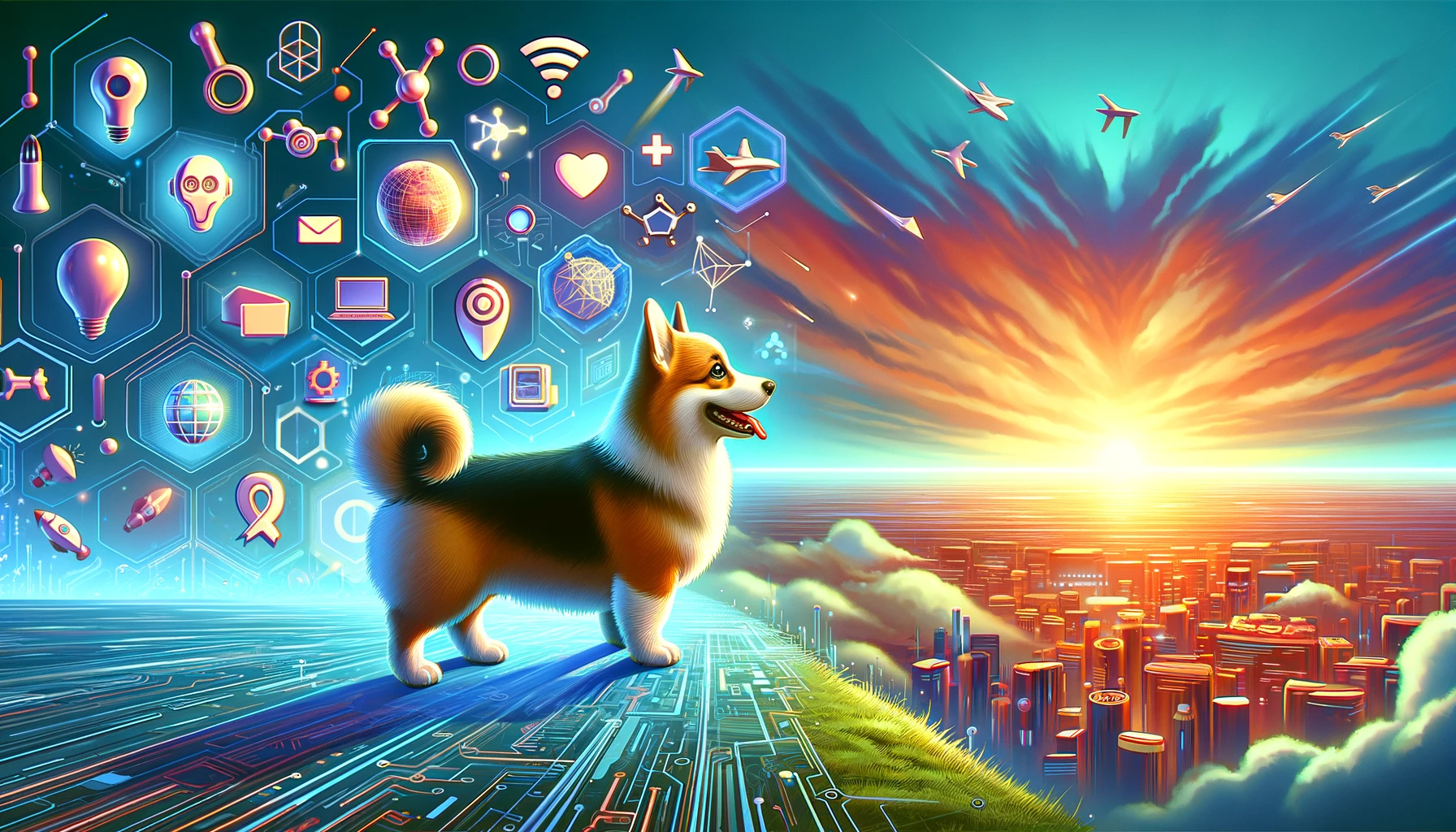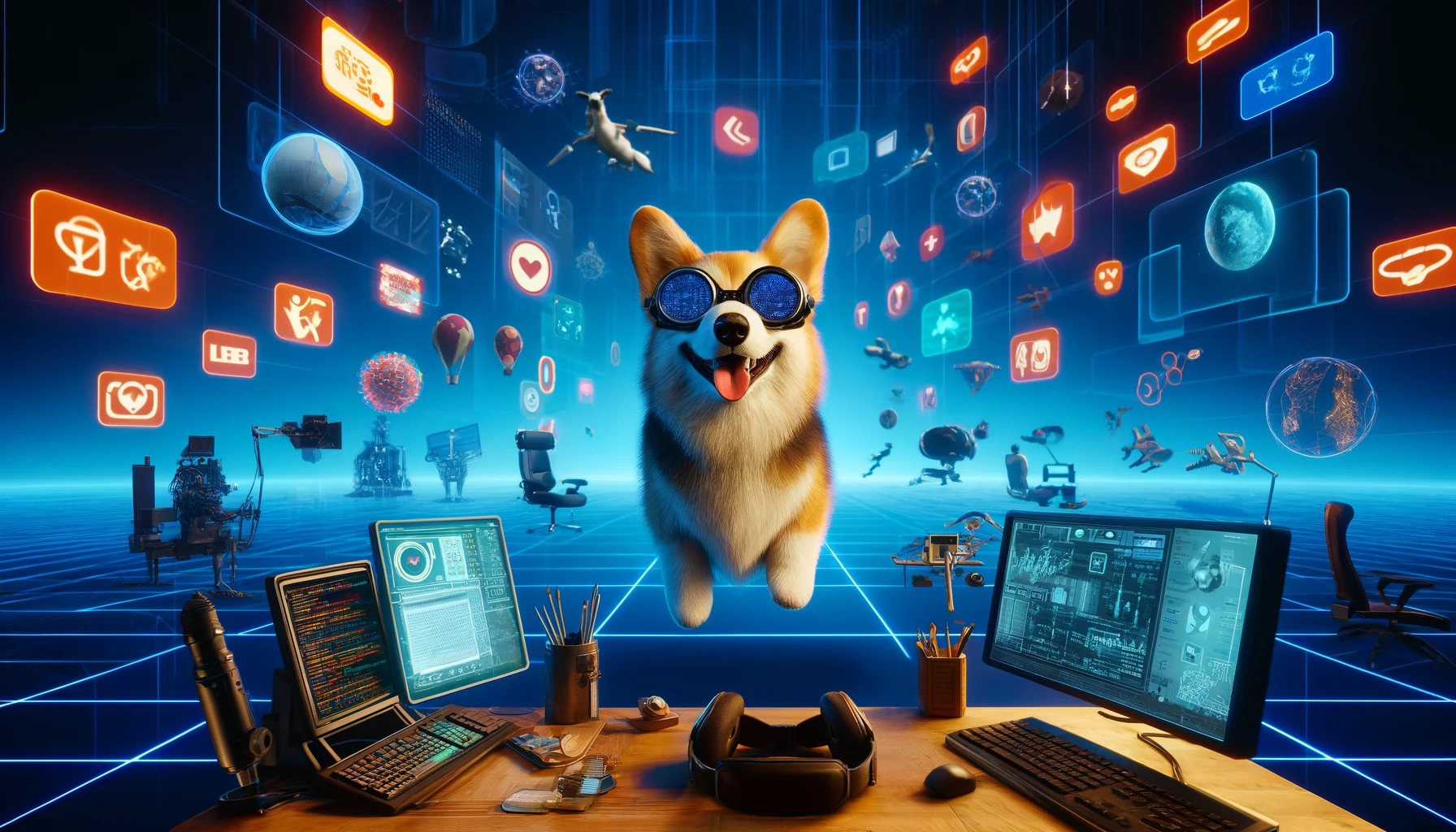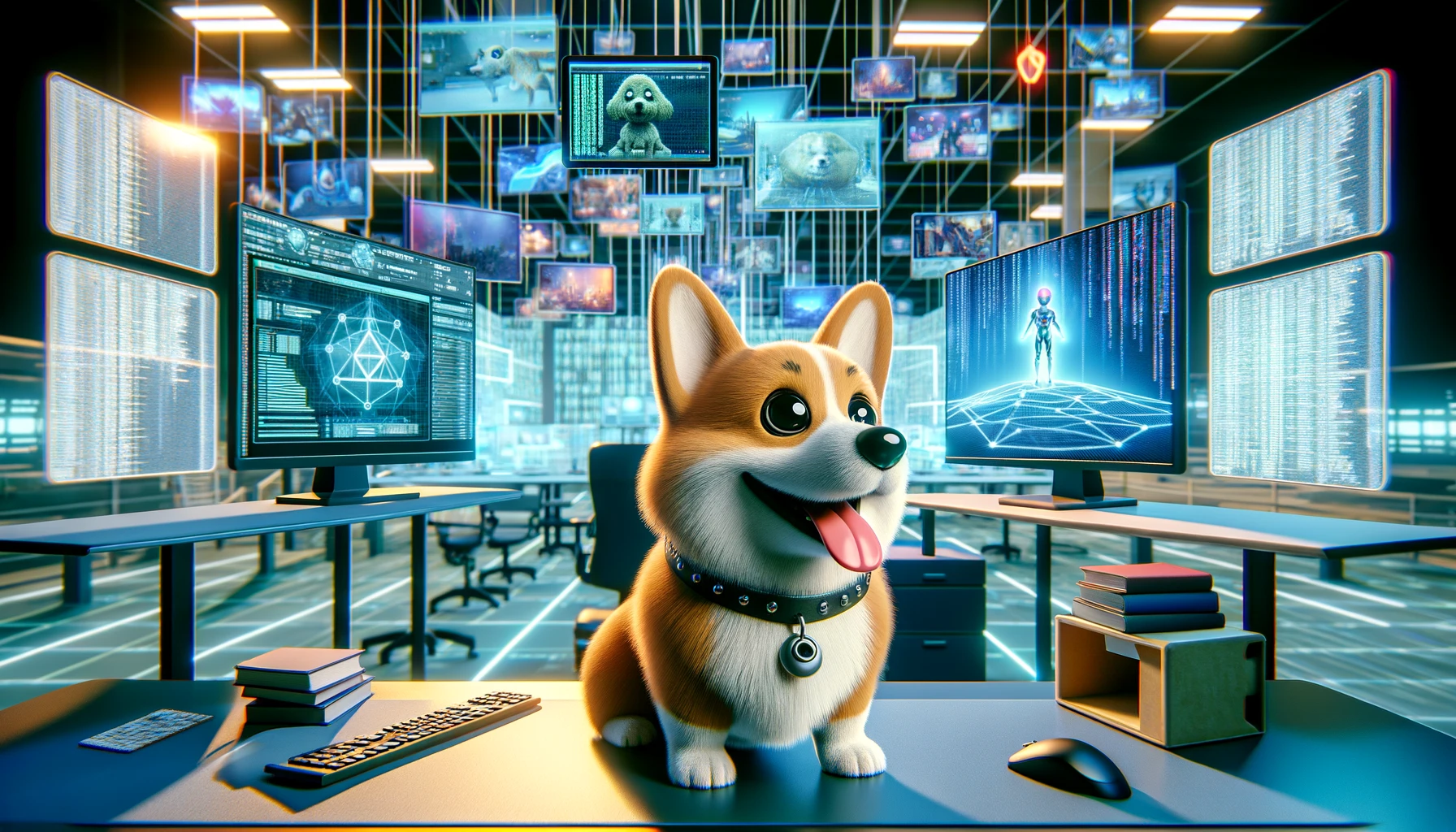640K Will Be Enough, or the Coming of a Post-Digital Age
A reflection on technological progress and the evolving relationship between humanity and digital technology in the modern era.

The COVID-19 pandemic and resulting lockdowns gave us a glimpse of what a fully digital future might look like. With the rise of the metaverse, virtual reality, and remote everything, it seemed we were on an unstoppable trajectory towards a Matrix-like existence mediated through screens.
But through the last decade, artificial intelligence made a quantum leap forward. The emergence of large language models like GPT-3.5, GPT-4, LLaMa, Claude, Gemini, and Mistral has been astonishing to the general public, though not surprising to those who have been closely following the field. While the path to artificial general intelligence (AGI) remains uncertain, one thing has become clear: the screen age that defined the early 21st century is coming to an end. We are entering the post-digital era.

The Fluctuation of the Screen Age
To understand this shift, we need to look back at the history of computing. In the early days of AI research in the 1960s-80s, it was widely believed that human-level artificial intelligence was just around the corner. Ambitious projects like Japan's Fifth Generation Computer Systems aimed to create advanced AI-powered machines.
However, AI progress ended up lagging behind the rapid advancement of computer hardware and telecommunications. This gap led to the rise of the "human-at-the-screen" paradigm. Lacking sufficiently intelligent software, we put humans in the loop to operate increasingly powerful machines. Personal computers, smartphones, tablets — screens proliferated in our work and personal lives as the human-computer interface.
This screen age reached its zenith in 2020-2022, when pandemic lockdowns forced much of life and work to move online and remote. Video calls, virtual events, online shopping, and socializing became the norm. Screens were our windows to the world.
But this screen-centric era was always a fluctuation, a detour from the original vision of AI. It emerged to fill the gap between our hardware and software capabilities. Now, with the rapid progress in AI language models and robotics, that gap is finally being bridged. The counters are being reset as we return to the path of increasingly autonomous and intelligent machines.

The End of Screen-Mediated Reality
The implications of this AI-driven shift are profound. Many of the screen-based jobs and interfaces that have defined the past few decades will become obsolete. Chatbots and virtual assistants powered by large language models will replace human customer service agents staring at screens. Intelligent systems will monitor and manage digital infrastructure, ending the need for humans to constantly watch dashboards and respond to alerts. Robots will take over warehouses, factories, and delivery, working without human oversight.
Even creative work will be transformed as AI generates text, images, video, and other media that is increasingly indistinguishable from human-made content. We're already seeing the impact with the rise of deepfakes and AI-generated art. It will soon be impossible to tell what's real and what's synthetic online. This will have huge implications for digital media, marketing, journalism, and business.
Imagine trying to have an online meeting when you can't be sure if the other participants are real people or AI-generated avatars. Or relying on digital evidence in a world where anything can be realistically simulated. Even blockchain, which was supposed to be an immutable record, is vulnerable if the consensus mechanism can be manipulated.
The only way to truly prove something happened may be to have it on paper, in a physical vault. Film photography could make a comeback as the last bastion of reality.
This crisis of reality will force us to reevaluate many of our screen-based interactions and digital systems. The instant, online world will increasingly become the domain of AIs and bots talking to each other. Humans will have to rediscover older, slower, more analog modes of communication and recordkeeping. We're already seeing early signs of this retro-futurist trend, like the resurgence of mechanical keyboards and other physical interfaces. Physicality will matter again.

Redefining Knowledge Work
But the post-digital shift isn't just about moving away from screens. It's about redefining what we consider valuable human work and cognition. A common fear is that AI will automate away all knowledge work, leading to mass unemployment. But this assumes that what many knowledge workers currently do — responding to emails and messages, filling out online forms, staring at spreadsheets and dashboards — is the apex of human intelligence. In reality, much of this screen-based busywork is tedious, toxic, and far, far remote from true knowledge creation.
If you look back at depictions of knowledge work in movies from the 1960s-80s, you'll notice a very different vibe from today's always-on, instant-response culture. Researchers pored overprinted journals in wood-paneled offices. Engineers worked on elegant electromechanical devices. Programmers fed punch cards into hulking mainframes. The pace was slower, but the work was more deliberate, tactile, and deeply focused. With the power of today's calculators, we sent men to the Moon and back. Today, with all the superpowers of pocket supercomputers, we are not able to solve the problems that seemed elementary in those days.
This isn't to say we should go back to punch cards, but it's clear that the current screen-mediated mode of knowledge work is an anomaly, not the end state. As AI takes over the rapid digital busywork, humans will be freed to focus on higher levels of analysis, creativity, and wisdom that can't be automated. We'll have to rediscover older, pre-digital modes of deep work while inventing new ones.
A good analogy is the progress of freediving. In the early 20th century, it was believed that humans could only dive to around 30 meters on a single breath. Then divers like Jacques Mayol began to push the limits, ultimately reaching over 100 meters. Today, the record stands at 214 meters, and 50 meters is considered beginner level. The supposed physiological barriers were largely mental.
Similarly, as AI keeps pushing the boundaries of what we thought required human intelligence, we'll realize that the current limits of knowledge work are just a temporary threshold. We'll discover new depths of human analysis and creativity that we can't even imagine yet, just like early freedivers couldn't conceive of going beyond 30 meters.
This doesn't mean knowledge work will be automated away, any more than athletics ended when we invented cars and planes. Instead, it will be redefined around new frontiers and challenges. Just as the invention of the computers didn't end mathematics but freed us to explore entirely new fields unthinkable before, AI will ultimately expand the domain of human knowledge rather than contract it.

Towards a New Humanism
The post-digital age, then, isn't just about new technologies. It's about rediscovering what it means to be human in a world of increasingly intelligent machines. It's about stepping back from the screen-mediated busyness to ask deeper questions about the nature and purpose of our work and cognition.
In many ways, this shift echoes the transition from the Middle Ages to the Renaissance. Medieval scribes spent their days hand-copying manuscripts, a laborious form of knowledge work not unlike filling out online forms and databases. The printing press automated much of this routine labor, but it didn't end human scholarship. Instead, it fueled a renaissance in literature, science, philosophy, and the arts as humans turned their minds to higher levels of creation and analysis.
Similarly, as AI frees us from screen-bound drudgework, we'll need a new humanism that reexamines timeless questions: What is the good life? What is worth knowing? What is the role of beauty, emotion, and embodiment? What are the limits of reason and logic? How should were late to nature and to each other?
Of course, there was a lot of effort into the new forms of human-machine symbiosis that go beyond screens. Augmented reality, brain-computer interfaces, and other technologies were expected to merge the digital and physical in ways that are more intuitive and immersive. A big question arising now is whether AI makes such things useful only for enthusiasts and brave experimenters, as far as typical use cases make no need for human immersion into the digital world.
Ultimately, the post-digital age will be defined by a new appreciation for the unique qualities of human cognition — our ability to make intuitive leaps, grasp complex contexts, empathize, imagine, and dream. Machines may master the speed and scale of the digital world, but humans will rediscover the depth and meaning of the analog.
As we step back from our screens, we'll see the world with fresh eyes. We'll remember that reality isn't something to escape from, but to engage with fully and creatively. We'll embrace a new humanism that celebrates the beauty and mystery of the embodied mind in a world of intelligent machines. The post-digital age will be a renaissance of the human spirit.
